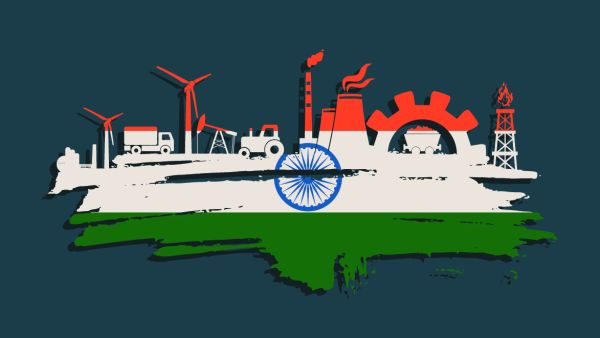New Delhi: India, which is the world's third-largest consumer of fossil fuel, imports 85% of the crude oil it processes and 54% of its natural gas requirement. India's gross domestic production of natural gas in September fell 1.7% at 2,852 million metric standard cubic meters on an annualized basis, while crude output remained almost stagnant at 2.4 million metric tons, according to official data.
India is the world's fastest growing economy that has huge energy requirements that cannot be met through energy imports at extremely high rates because of a supply squeeze by the producers' cartel. Hence, India will be forced to dig more into its huge coal deposits, deferring its energy transition plans, experts said, requesting anonymity.
Developed countries must make sincere and equitable efforts in calming down artificially high fuel prices and promote energy transition, particularly from coal to cleaner fuels such as natural gas, or else nations like India will be left with no option but to raise domestic coal production, officials aware of the matter said.
"The government is focusing on domestic coal production to fuel India's economic growth. The focus is to involve private sector in coal production so that reliance on imported coal is minimized," an official said.
India expects 900 million tons local coal production this year, Union coal minister Pralhad Joshi said on November 3, that compares to 778 million tons in 2020-21. Domestic coal output in the current financial year up to October was more than 18% at 448.17 million tons, according to the coal ministry data.
The government's energy transition plan also includes raising the share of natural gas in India's energy mix from 6.3% now to 15% by 2030, mainly through imports of liquefied natural gas (LNG).
India's LNG import costs jumped 70% in 2021-22 at $13.4 billion compared to $7.9 billion in 2020-21, even as import quantity fell by about 7%. LNG in the spot market is around $50-60 per million metric British thermal unit (mmBtu) compared to around $10-12 before the Ukraine war.
"As domestic output (of natural gas) is almost stagnant and costs of crude oil and LNG have soared due to the supply curbs, India is left with no option but to raise its coal production," said one of the experts.
Union finance minister Nirmala Sitharaman said a fast-growing economy such as India needs greater investment in coal production and gasification projects as energy prices globally, especially that of gas, is going up, stressing the need for coal gasification at a time when global gas prices are soaring and uncertainties around energy supply persists.
Supply chain disruptions because of the Ukraine war and energy supply cuts by the Organization of the Petroleum Exporting Countries (OPEC) and its allies, including Russia, together called OPEC+, have led to major shortages of intermediate products such as crude, coal, natural gas and semiconductors, experts said.
"The resulting scarcity and upsurge in energy prices is one of the key factors responsible for the ongoing economic recessions/slowdowns in many economies," consultancy firm Ernst & Young Global Limited (EY) said in its latest edition of Economy Watch.
Even as other economies are staring at an impending recession, India needs cheaper energy to fuel its economic growth because it is the world's fastest growing economy, EY said. Even as recessionary clouds are on the global horizon, "India remains a bright spot," said EY India chief policy advisor D.K. Srivastava.








